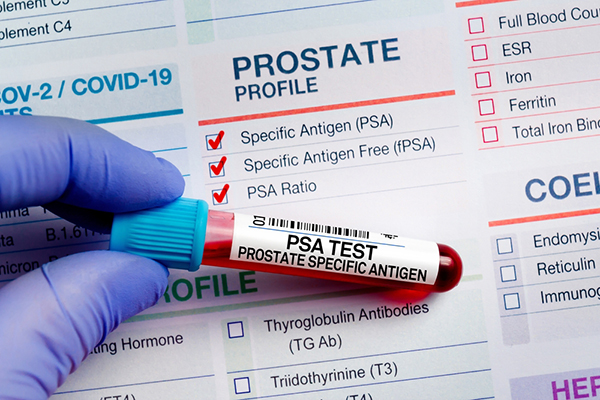A number of areas of the National Institute for Health and Care Excellence (NICE) Clinical Knowledge Summary on Prostate Cancer have been updated in light of new research.
The knowledge summary highlights that more prostate cancer is diagnosed in men of black ethnicity than in white men with a raised prostate-specific antigen (PSA) level. Black men are more likely to have metastatic cancer at diagnosis, according to a national population-based study in England (Dodkins et al, 2025).
The recommendations re thresholds of PSA levels at which people with possible symptoms of prostate cancer should be referred using a suspected cancer pathway referral (for an appointment within 2 weeks) have been altered for those over 79 years of age.
While NICE (2021) recommends using clinical judgement, the Academy of Medical Royal Colleges (2024) recommends that those with a PSA level of more than 7.5ng/ml and symptoms suggestive of metastatic disease (bone pain and/or fatigue and/or unintended weight loss) should be referred on the suspected cancer pathway.
The updated Clinical Knowledge Summary states that there is a particular risk of over-diagnosing and overtreating prostatic cancer in men over the age of 79 where the prevalence is highest but the proportion of cancers which are clinically significant is lowest.
In those men above the age of 79, if the initial PSA test is 7.5–20ng/ml and there are no symptoms suggestive of metastatic disease, the PSA measurement should be repeated once after 6 months. After repeating PSA, refer via a suspected cancer pathway if any of the following occur:
- There are symptoms suggestive of metastatic disease
- The PSA level has risen above 20ng/ml
- The PSA level has more than doubled and the patient has a performance status of 0 or 1.
If patients do not fit any of these criteria but there are still concerns, seek appropriate support using ‘advice and guidance’ mechanisms.



